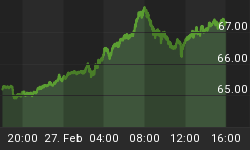As a general rule, the most successful man in life is the man who has the best information
Our financial predicament explained, from reszatonline.wordpress.com
Helga is the proprietor of a bar. She realizes that virtually all of her customers are unemployed alcoholics and, as such, can no longer afford to patronize her bar. To solve this problem, she comes up with a new marketing plan that allows her customers to drink now, pay later.
Helga keeps track of the drinks consumed on a ledger (thereby granting the customers' loans).
Word gets around about Helga's "drink now, pay later" marketing strategy and, as a result, increasing numbers of customers flood into Helga's bar. Soon she has the largest sales volume for any bar in town.
By providing her customers freedom from immediate payment demands, Helga gets no resistance when, at regular intervals, she substantially increases her prices for wine and beer, the most consumed beverages. Consequently, Helga's gross sales volume increases massively.
A young and dynamic vice-president at the local bank recognizes that these customer debts constitute valuable future assets and increases Helga's borrowing limit. He sees no reason for any undue concern, since he has the debts of unemployed alcoholics as collateral!!!
At the bank's corporate headquarters expert traders figure a way to make huge commissions, and transform these customer loans into DRINKBONDS. These "securities" then are bundled and traded on international securities markets.
Naive investors don't really understand that the securities being sold to them as "AA" "Secured Bonds" really are debts of unemployed alcoholics. Nevertheless, the bond prices continuously climb and the securities soon become the hottest-selling items for some of the nation's leading brokerage houses.
One day, even though the bond prices still are climbing, a risk manager at the original local bank decides that the time has come to demand payment on the debts incurred by the drinkers at Helga's bar.
He so informs Helga.
Helga then demands payment from her alcoholic patrons, but being unemployed alcoholics they cannot pay back their drinking debts. Since Helga cannot full fill her loan obligations she is forced into bankruptcy.
The bar closes and Helga's 11 employees lose their jobs.
Overnight, DRINKBOND prices drop by 90%. The collapsed bond asset value destroys the bank's liquidity and prevents it from issuing new loans, thus freezing credit and economic activity in the community.
The suppliers of Helga's bar had granted her generous payment extensions and had invested their firms' pension funds in the BOND securities. They find they are now faced with having to write off her bad debt and with losing over 90% of the presumed value of the bonds.
Her wine supplier also claims bankruptcy, closing the doors on a family business that had endured for three generations, her beer supplier is taken over by a competitor, who immediately closes the local plant and lays off 150 workers.
Fortunately though, the bank, the brokerage houses and their respective executives are saved and bailed out by a multibillion dollar no-strings attached cash infusion from the government.
The funds required for this bailout are obtained by new taxes levied on employed, middle-class, non-drinkers who have never been in Helga's bar.
The end
The only difference between this tale and the reality of our present circumstance is that the bailout funds are simply created from thin air, the stroke of a keyboard rather than raising taxes.















